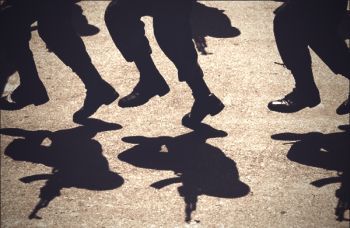
Publisher:
Bonnie King
CONTACT:
Newsroom@Salem-news.com
Advertising:
Adsales@Salem-news.com

~Truth~
~Justice~
~Peace~
TJP
Mar-04-2012 13:32

 TweetFollow @OregonNews
TweetFollow @OregonNews
Sri Lanka Against Itself
Salem-News.comRajapaksa could have saved Sri Lanka the diplomatic energy now being expended.
 Courtesy: groundviews.org |
(DELHI, India The Hindu) - Sri Lanka is engaged in an all-out effort to stave off a resolution against it at the ongoing session of the United Nations Human Rights Council at Geneva.
The United States, the prime backer of the resolution, has circulated a draft among the Council's 47 members calling on Colombo to do nothing more than implement the recommendations of its own Lessons Learnt and Reconciliation Commission, as well as to initiate credible investigations into violations of international human rights laws not addressed adequately by the LLRC.
Among other recommendations, the report, tabled in the Sri Lankan parliament last year, asked the government to “ascertain, more fully the circumstances” of five incidents in which civilians were killed during the last phases of the war against the LTTE in 2009, and if wrongful conduct by security personnel were established, to prosecute and punish.
It also asked the government to investigate the disappearances of LTTE members who surrendered, to demilitarise northern Sri Lanka, and to arrive at a settlement for devolution of powers to the Tamil minority.
In its defence, the Rajapaksa government has pointed to internal enquiries initiated by the Sri Lankan Army as “progress” on implementing the LLRC recommendations; it has also cited the setting up of a parliamentary select committee as evidence of its sincerity in addressing the Tamil question.
The success or failure of a resolution at the HRC depends not so much on the merit of the issue, but on a country's diplomatic ability to line up friends and allies, in support of or against the resolution. By that measure, Sri Lanka could yet come out of its ordeal laughing.
While it is true that America's human rights advocacy is riddled with double standards, the debate at Geneva is an opportunity for Sri Lanka to reflect on why it finds itself at such a difficult pass.
Over the past three HRC sessions, the Rajapaksa government was able to buy time with promises and action plans, which — had they been executed — could have saved Sri Lanka the diplomatic energy now being expended.
Even the LLRC felt constrained to complain that its interim recommendations had not been implemented.
Instead, the government has chosen to paper over issues of accountability for the loss of civilian lives during the war's final weeks.
Much to the exasperation of allies such as India, it has also blown hot and cold about a settlement of Tamil political aspirations.
Sri Lanka must realise that its own interests require it urgently to address these twin bases of national reconciliation.
Sadly, its response to the Geneva challenge has been to whip up anti-U.S., anti-West, Sinhala nationalist protests at home, creating an atmosphere of an island under siege. This is hardly a constructive response; if anything, the government's over-the-top campaign may further sharpen ethnic cleavages in the country.
Special thanks to The Hindu
http://www.thehindu.com/opinion/editorial/article2961021.ece
 |
 |
 |
 |
 |
Articles for March 3, 2012 | Articles for March 4, 2012 | Articles for March 5, 2012

googlec507860f6901db00.html



Salem-News.com:
Terms of Service | Privacy Policy
All comments and messages are approved by people and self promotional links or unacceptable comments are denied.
[Return to Top]
©2026 Salem-News.com. All opinions expressed in this article are those of the author and do not necessarily reflect those of Salem-News.com.